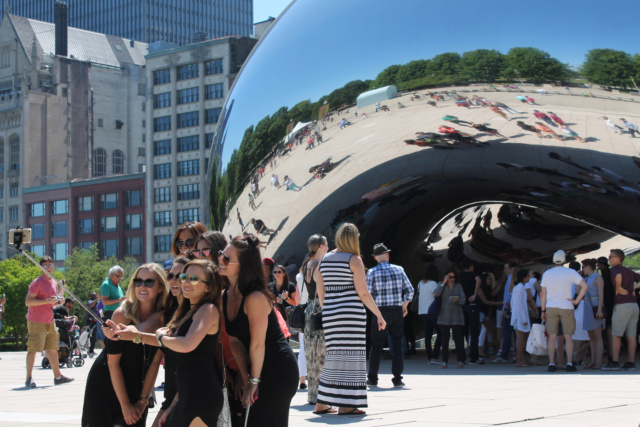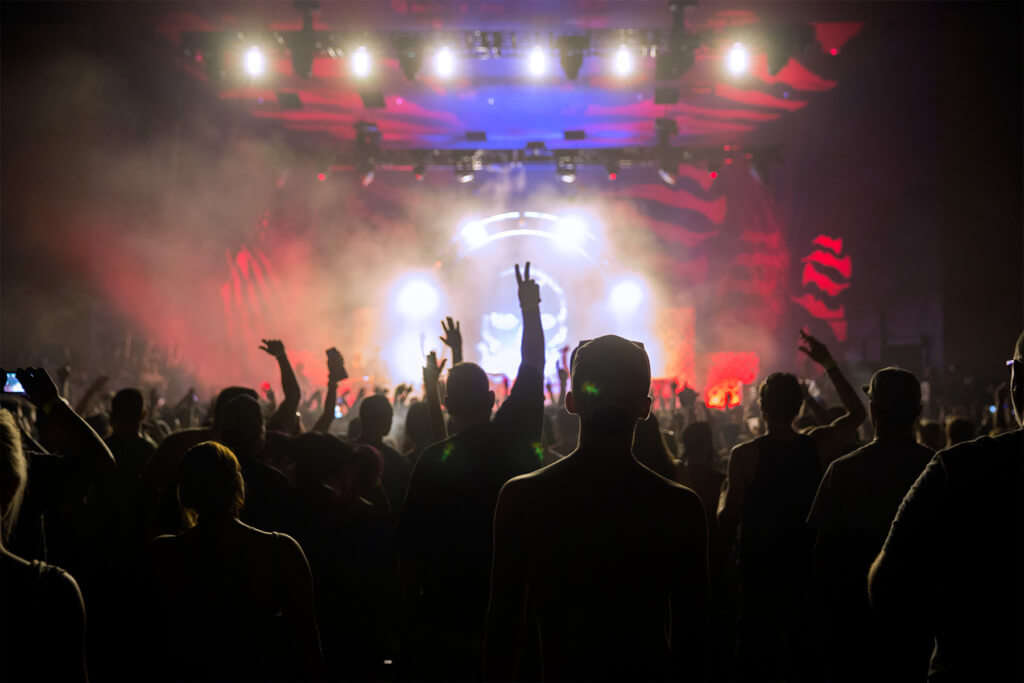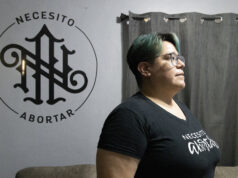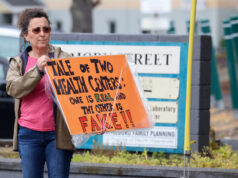

By Elizabeth Campbell, Natalie Griffin, Amber Reece
News21
SALT LAKE CITY — Millennials get a bad rap when it comes to voting. They’re labeled narcissistic, self-absorbed and apathetic. (Just look at their nicknames: the selfie generation, generation me, the unemployables.)
And they’re the least likely generation to turn up at the polls this November.
However, many young Americans do care about politics. They may just show it differently than their more-traditional parents.
As of April, the U.S. Census Bureau estimated there were about 69.2 million millennials, roughly defined as Americans age 18 to 35, in the U.S. electorate, according to a Pew Research Center study. This group makes up about a third of the voting-age population, matching the baby boomers.
And that means they have the potential to strongly influence upcoming elections. But will they? Here’s what you need to know about millennials and voting.
Defining a generation
Millennials are more diverse than any generation before them. According to 2014 census data, 44 percent of them identify as nonwhite.
Elli Denison, director of research for the Center for Generational Kinetics, a Texas-based consulting firm that specializes in generational research, said millennials have grown up with diversity and celebrate it.
“They really value that,” Denison said. “They look at a group of people and think ‘Oh, dear, we all look the same.’” And that troubles them.
Mike Hais, co-author of the book “Millennial Majority: How a New Coalition is Remaking American Politics,” agreed. He said this diversity has led to the generation being more accepting, which affects their political views.
“They tend to be the most socially tolerant generation in America,” Hais said. “Immigration, gay rights and the like, for all these reasons, their attitudes tend to be progressive and tolerant. They really are, in that sense, a very distinctive generation.”
Those distinctions don’t always correlate along party lines, either. According to a 2016 Gallup poll, 44 percent of millennials identify as independents, while 28 percent identify as Democrats and 19 percent Republicans.
They vote less often than other generations
Millennials consistently have the lowest election turnout among all generations. According to the U.S. Census Bureau, only 17.1 percent of 18- to-24-year-olds voted in 2014, compared with 59.4 percent of those 65 and older.
Why? Some experts on the generation said one of the most prevalent reasons is that millennials tend to move around – a lot.
At some point in their lives, 51 percent of millennials moved for employment, 46 percent moved for or to find a romantic partner, and 44 percent had moved for family, according to a study of 1,000 people between the ages of 18 to 35 from the moving company Mayflower.
This constant moving around often means re-registering to vote or requesting absentee ballots. However, the 50 states and thousands of counties have different rules, which can lead to confusion.
Some states also passed legislation that seem to target millennials, said Russell Dalton, a political science professor at University of California, Irvine, and author of the book “The Good Citizen: How a Younger Generation is Reshaping American Politics.” This includes forcing people to register in person the first time, shortening registration windows, refusing to accept student ID cards or rejecting certain documents as proof of residency.
“There is a whole set of institutional reforms that if politicians wanted to get young people to vote, they could,” Dalton said. “But politicians are happy with the status quo.”
Abby Kiesa, youth coordinator and researcher for the Center for Information and Research on Civic Learning and Engagement (CIRCLE), said several barriers keep young people from voting. Along with the legislative hurdles, Kiesa said communities don’t often reach out.
“We don’t do a very good job as a country in integrating and welcoming young people into democratic process,” Kiesa said.
However, even when states and jurisdictions do make it easy to register and vote, it doesn’t necessarily mean millennials will make it to the polls.
Political strategist Luke Macias, CEO of Macias Strategies LLC, said millennials just aren’t as connected to local governments as older generations, so they don’t see the value in voting.
“There is a level of apathy in millennials, but the baby boomers were apathetic at 18 too,” Macias said. “I don’t think most millennials see the impact an elected official has on their lives, and as they get older and get more involved, they’ll see that these elected officials are the ones making the decisions.”
They care about a wide range of issues
Because millennials tend to distrust politicians, they often pay more attention and spend their time on issues rather than parties. Maurice Forbes, the youth vote director for NextGen Climate in Nevada, said he sees this trend with college students.
“I hear a lot from theses campuses across Nevada that ‘I care about these specific issues that are going to be affecting me and less so about a particular candidate that is expressing their views on that,’” Forbes said.
But it’s not just two or three main issues that stand out to millennials. They feel passionate about a wide range of issues.
Millennials don’t necessarily consume news and information the same way previous generations did – from the nightly broadcast news or the daily newspaper. But that doesn’t mean millennials don’t care about the world, according to a study by the Media Insight Project.
In fact, the study suggested that millennials’ access to technology and social-media platforms has actually widened their awareness of issues. “Millennials also appear to be drawn into news that they might otherwise have ignored because peers are recommending and contextualizing it for them on social networks, as well as on more private networks such as group texts and instant messaging,” the study said.
Harvard student Kevin Sani, a member of the group that launched the college’s 2016 political poll, said this constant access to media actually creates a polarization among millennials because they gravitate toward information and sources they care about.
“Nobody really wants to read news that disagrees with them,” Sani said. “We all want news that agrees with us as a confirmation of our own beliefs, so that can further enhance the echo chamber effect.”
Organizations get creative to reach potential voters

All in the name of voter registration.
Voting groups across the country are realizing if they want to appeal millennials, they’ve got to make the process fun.
“In a word, that approach makes perfect sense,” Hais said. “Millennials, as a civic generation, are very group oriented and other-directed. In addition, it’s simply efficient to try to enlist people in venues where they gather in large numbers.”
HeadCount, a New York-based nonprofit organization, hosts voter registration drives at music festivals and concerts across the country. By combining music and politics, HeadCount has registered more than 300,000 voters since 2004.
“We’re catching people where they’re having fun,” said Aaron Ghitelman, the communications manager for HeadCount. “If somebody’s in a good mood, they’re more likely to register.”





















